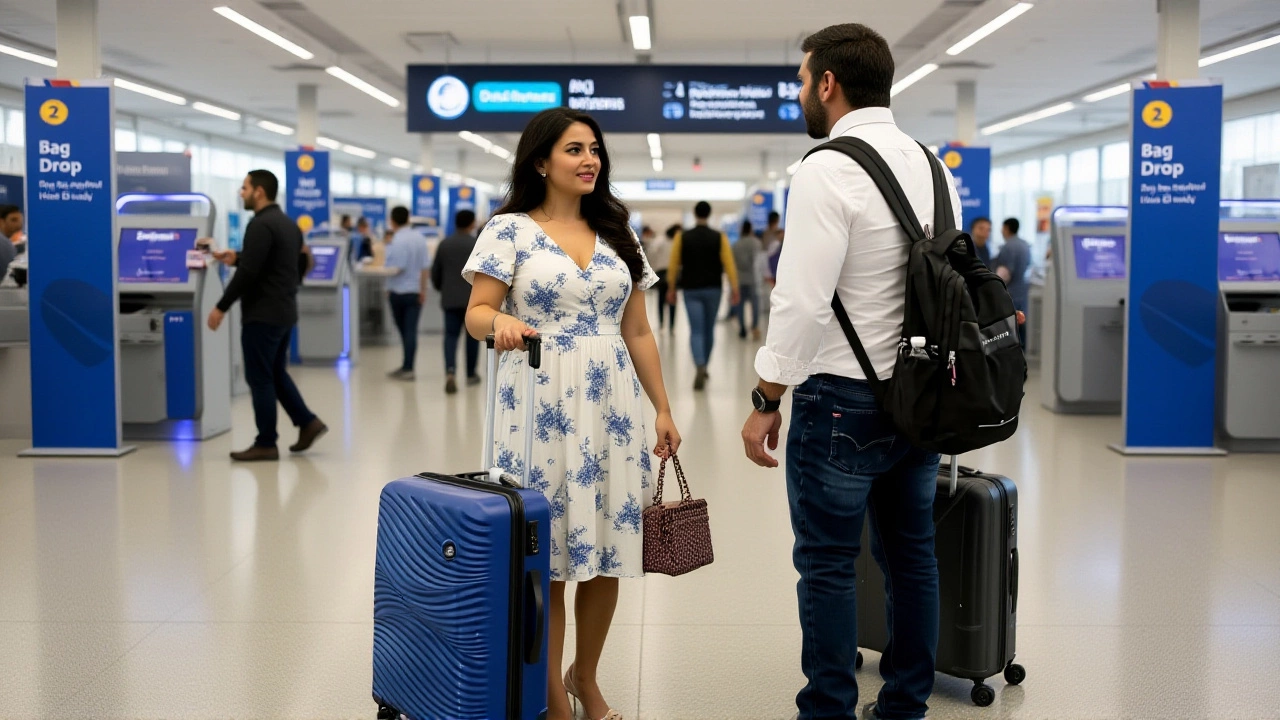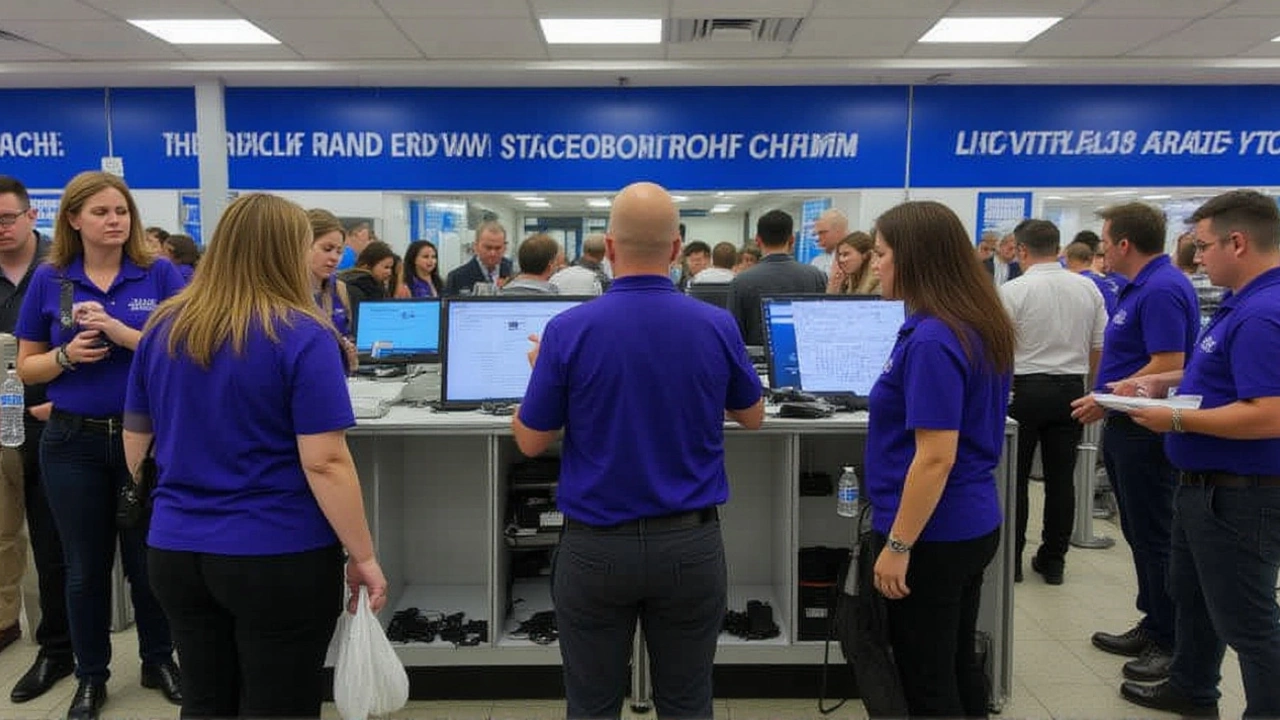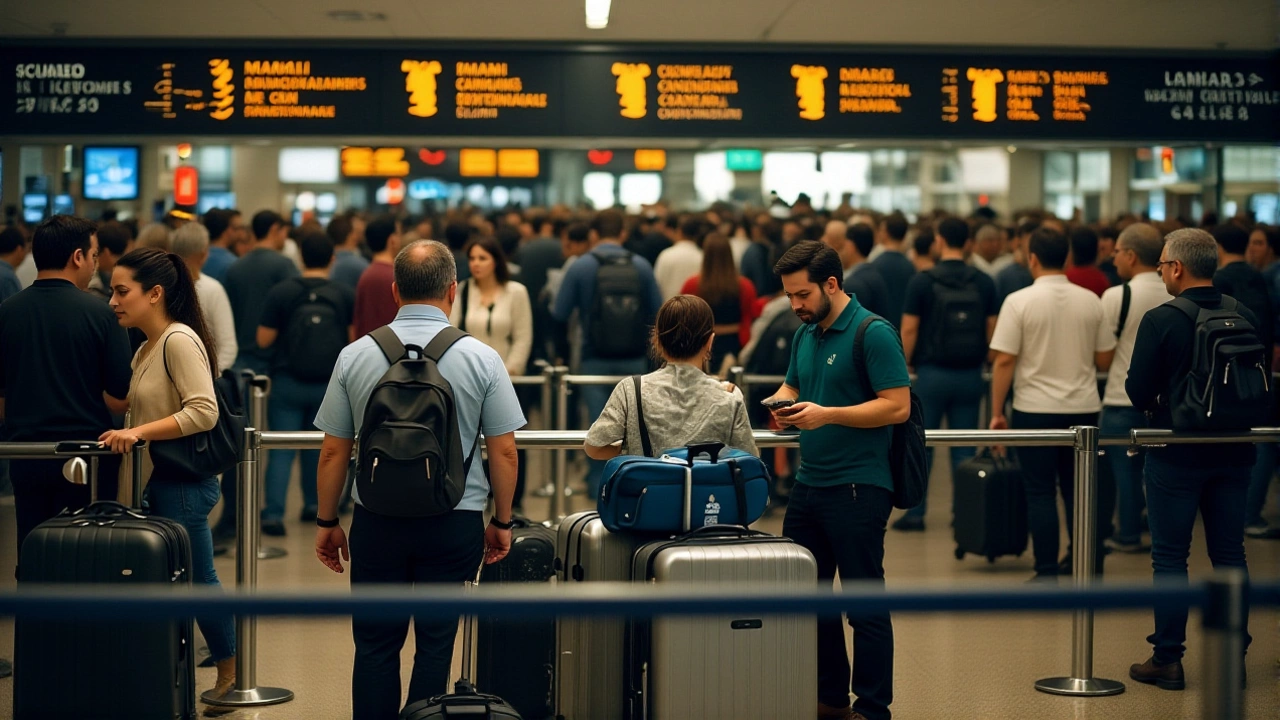On Monday, October 20, 2025, a sudden combo of severe weather and a tech outage forced JetBlue Airways, United Airlines, Southwest Airlines, American Airlines and Delta Air Lines to pull the plug on 71 scheduled flight cancellations across six major hubs, leaving thousands of travelers stranded. The turmoil unfolded as thunderstorms slammed the Northeast, while an early‑morning outage at Amazon Web Services crippled mobile check‑in for United and Delta passengers. By 8:00 p.m. ET on October 21, the Federal Aviation Administration (FAA) had already issued ground stops at three key airports, underscoring how quickly the situation escalated.
Weather Chaos Triggers Nationwide Disruptions
A cold front slammed the Eastern seaboard on October 20, bringing rain, hail and wind gusts that topped 45 mph. Major Northeast hubs—especially Newark Liberty International Airport, Baltimore/Washington International Thurgood Marshall Airport and Dallas–Fort Worth International Airport—saw ground stops imposed by the FAA as pilots were barred from taking off in hazardous conditions. FlightAware logged more than 4,400 delays and 527 cancellations nationwide by the evening of the 21st. The ripple effect was felt far beyond the storm zone, with arrivals and connections at Miami International Airport, Orlando International Airport, Houston George Bush Intercontinental Airport, Boston Logan International Airport, Denver International Airport and San Francisco International Airport. The domino effect of delayed inbound flights left gate agents scrambling to re‑schedule outbound legs.
Technical Glitch Adds to the Turmoil
Just as the storm was raging, a separate issue erupted on the West Coast. At around 5:30 a.m. PT, Amazon Web Services suffered a regional outage that knocked out the backend systems powering United’s and Delta’s mobile apps and website check‑in portals. United’s spokesperson issued a brief statement at 9:02 a.m. ET, urging passengers "to check in at the airport if you are not able to access this in your app." While the outage didn’t directly trigger cancellations, it added confusion for travelers already trying to navigate delayed itineraries. Social‑media chatter showed dozens of passengers posting screenshots of error messages, some of which delayed boarding because flight plans couldn’t be verified on time.

Airline Responses and Waivers
Faced with a dual‑front crisis, the carriers moved quickly to soften the blow. Delta, JetBlue and American announced change‑fee waivers for any ticket re‑booked from their major Northeast and Mid‑Atlantic hubs—New York’s JFK and LaGuardia, Boston, Washington D.C.’s DCA, and Philadelphia. Southwest, which was already grappling with its own weather‑related grounded flights, joined the waiver bandwagon for flights originating in Denver and Houston. United’s approach was more hands‑on: after the AWS glitch cleared, the airline stationed extra staff at ticket counters in Miami and San Francisco to manually process re‑checks. Delta’s customer‑service director, whose name was not disclosed, said the airline was "committed to getting people on the next available flight without penalty," echoing a tone of accountability that had been missing after the 2024 Crowdstrike incident that forced a 4 % global flight reduction for Delta.
Passenger Impact and Rebooking Efforts
What does that mean for the average traveler? Roughly 3,200 passengers were left on the tarmac at the six affected airports when the cancellations hit. Families heading to Disney World reported children crying for hours while agents tried to secure seats on later flights. Business travelers in Boston cited missed meetings and potential revenue losses, with one executive estimating a $12,000 hit to his firm’s quarterly earnings. Airline staff worked overtime through the night of the 20th and into the early morning of the 21st, redirecting people to alternate carriers when possible. In Miami, a United rep coordinated with a charter operator to shuttle 45 passengers to Orlando, saving them from a full‑day delay. Overall, the airlines managed to re‑accommodate about 68 % of affected travelers within 48 hours, according to a joint statement released on October 22.

Looking Ahead: Forecast for Fall Travel
Aviation analyst Kevin Derby of Aviation A2Z warned that the "perfect storm" of weather and tech issues could become more common as airlines lean heavily on cloud infrastructure. "We’re seeing a convergence of climate‑driven disruptions and digital‑dependency risks," Derby told reporters on October 23. He recommends that carriers build redundancies into both air‑traffic‑control communications and passenger‑service platforms. The FAA also announced plans to review its ground‑stop protocols to reduce cascading delays in future weather events. For travelers, the takeaway is simple: keep an eye on airline apps (when they work!), consider travel insurance, and expect a little extra patience during the fall shoulder season.
Frequently Asked Questions
How many flights were cancelled because of the weather?
A total of 71 scheduled flights were cancelled across six major airports on October 20, 2025, directly linked to severe thunderstorms and high winds that prompted FAA ground stops.
What caused the tech problems for United and Delta?
An early‑morning outage at Amazon Web Services disrupted the backend systems that power the airlines' mobile apps and website check‑in, forcing passengers to check in at airport counters.
Did any airlines waive change fees?
Yes. Delta, JetBlue, American, Southwest and United all announced fee waivers for re‑booking flights departing from key Northeast and central hubs, allowing travelers to change itineraries without penalty.
What steps are airlines taking to prevent a repeat?
Industry experts like Kevin Derby recommend building cloud‑service redundancies, improving weather‑forecast integration, and revising FAA ground‑stop protocols to minimize cascading delays.
How were passengers re‑accommodated?
Airlines deployed extra staff, secured charter flights, and coordinated with other carriers. By October 22, about 68 % of affected passengers had new seats, with the remainder awaiting later re‑booking windows.




Write a comment